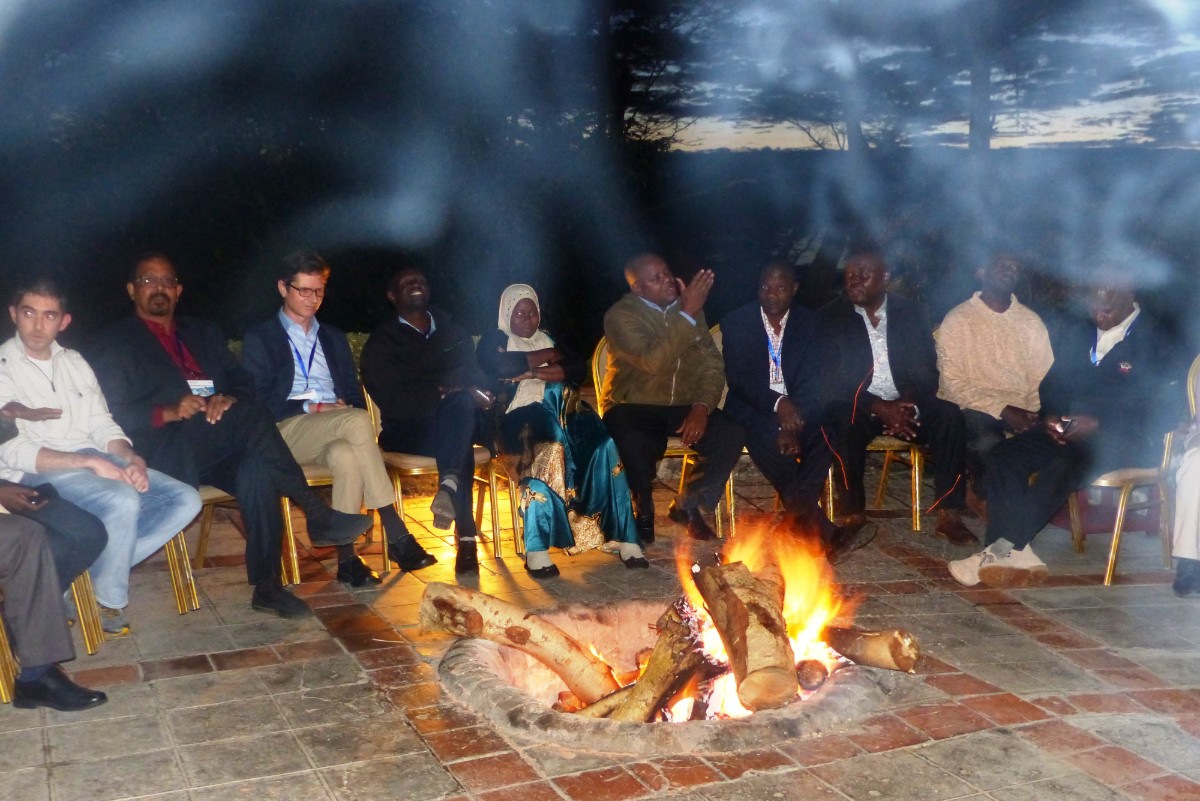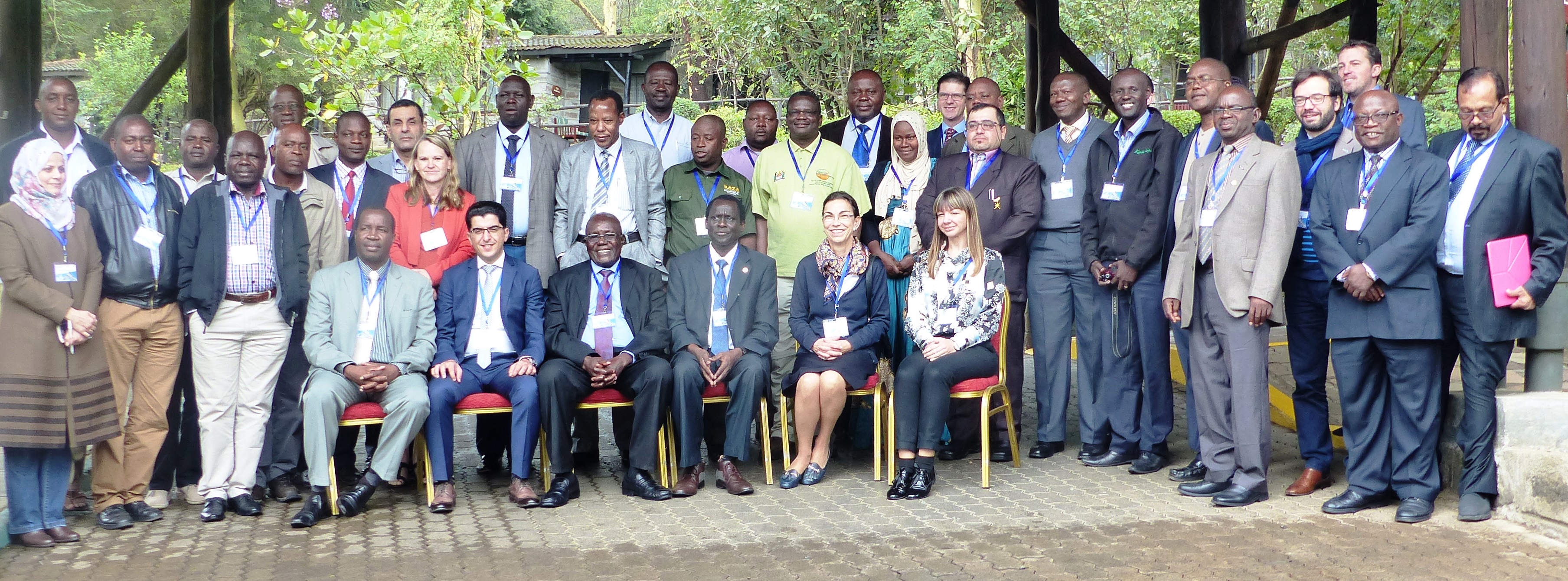
The fourth cycle of training of OIE National Wildlife Focal Points was held in Lake Nakuru National Park, in the Rift Valley of Kenya. From 22 – 24 November, some 25 English-speaking participants from Africa and the Middle East took part in the three-day course, i.e. Bahrein, Botswana, Gambia, Ghana, Jordan, Kenya, Lebanon, Malawi, Mauritius, Mozambique, Nigeria, Oman, Rwanda, Somalia, South Sudan, Sudan, Tanzania, Uganda, Zambia and Zimbabwe.
The opening ceremony was officiated by the Director of Veterinary Services and OIE Delegate of Kenya, Dr. Kisa Juma Ngeiywa who delivered an opening address, alongside Drs. Ali El-Romeh (OIE Beirut), Walter Masiga (OIE Nairobi), Moetapele Letshwenyo (OIE Gaborone) and Elisabeth Erlacher-Vindel (OIE Paris).
The OIE Science and New Technologies (SNT) and the World Animal Health Information and Analysis (WAHIAD) Departments in Paris delivered the course. In addition to OIE staff from the Paris head office and regional staff from Beirut, Gaborone and Nairobi), contributions were made by two OIE Reference Centres on wildlife (DVTD, South Africa and NWHC, United States), as well as invited regional experts from Kenya (Kenya Wildlife Services, KWS and the “Preparedness and Response” project, funded by USAID).
The participants also benefited from a video link presentation by from the Convention on International Trade in Endangered Species of Wild Fauna and Flora (CITES) in Geneva, with which the OIE signed a cooperation agreement in December 2015
Group photograph with OIE representatives and the OIE Delegate of Kenya seated on the front row.
National focal points from Kenya, Lebanon, Nigeria, Oman, Rwanda and Tanzania made presentations on specific challenges to wildlife disease surveillance and progress made since the last OIE training of focal points.
The training course was centered around biodiversity, wildlife disease surveillance strategies, wildlife mortality outbreak investigation and wildlife disease diagnostics, with practical exercises conducted in 5 working groups, as well as a specific, interactive session on the surveillance of bovine tuberculosis in wildlife. On the last day, participants were invited to review the use of the wildlife diseases reporting system of the OIE World Animal Health Information System (WAHIS-Wild).
With some of the participants having a long-standing track record in managing animal health in some of the world’s most renowned conservation areas, the workshop turned out to be of a very high technical standard, with vibrant exchanges between scientists and field veterinarians.
The training course was funded by the OIE World Animal Health and Welfare Fund, through grants from the European Commission (the European Parliament’s “Strengthening veterinary services in developing countries” project) and the Republic of Italy, with financial support of the Republic of Kenya and the Kenya Wildlife Services (KWS).
The following training seminar is the one for French-speaking African countries, to be held in Lome, Togo, from January 17 to 19, 2017 .
All pictures © P. Bastiaensen (oie) 2016, except where mentioned otherwise.


